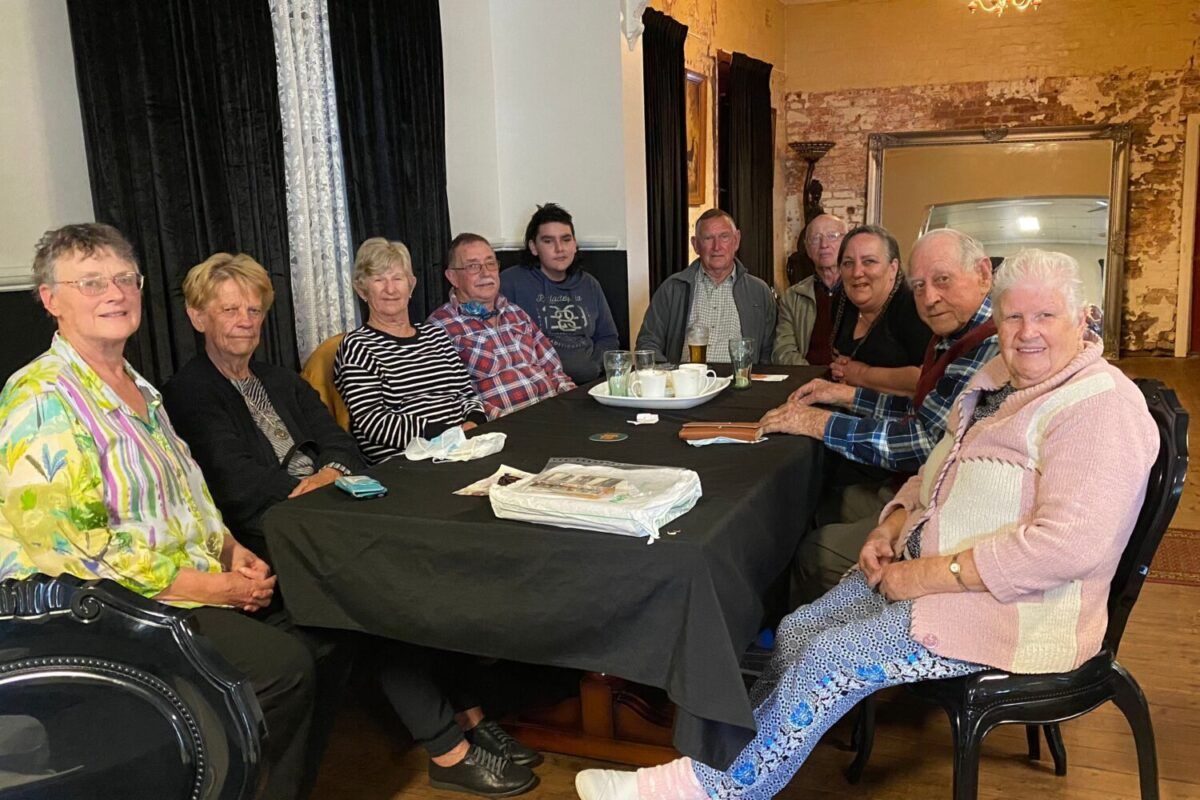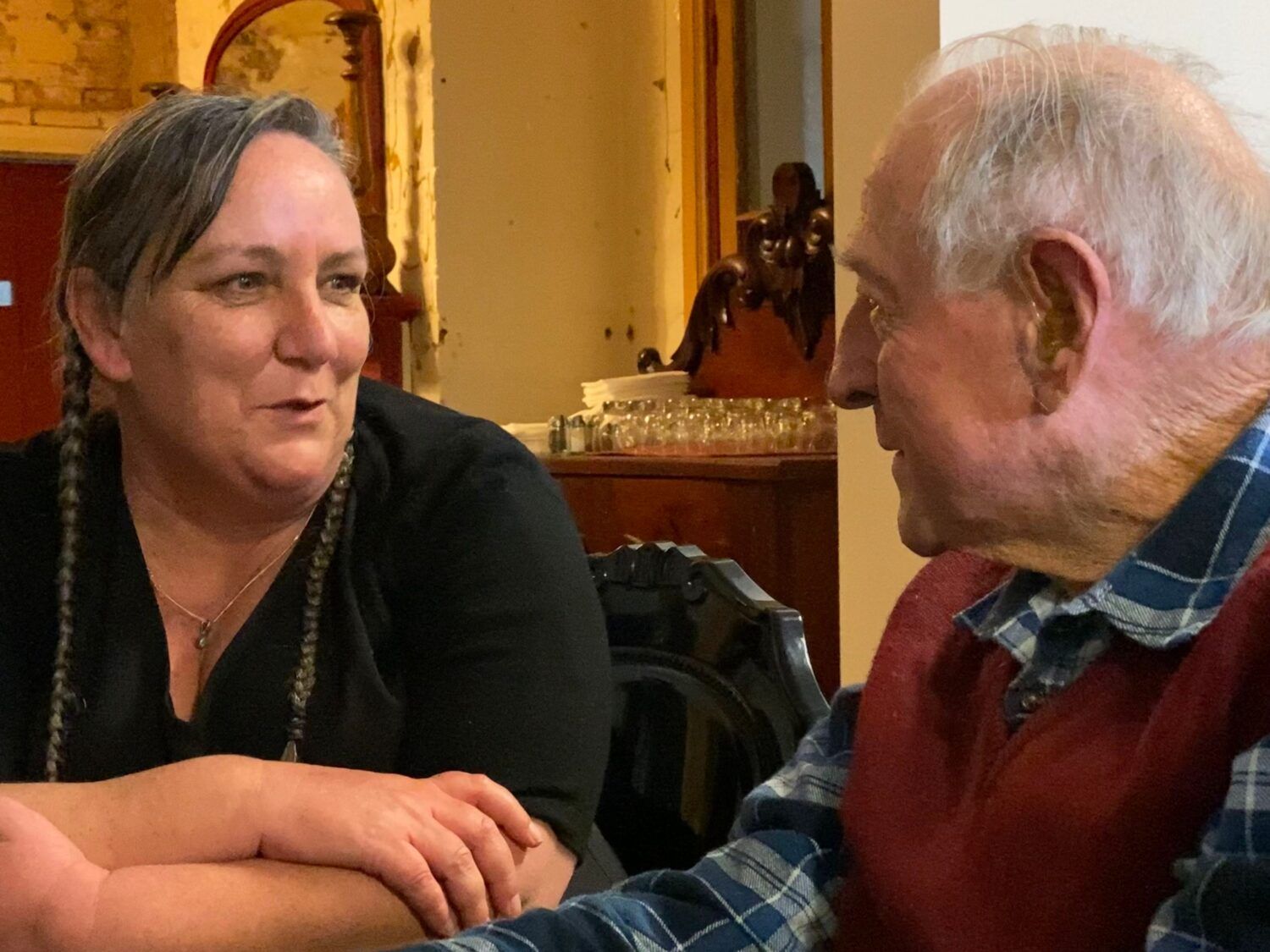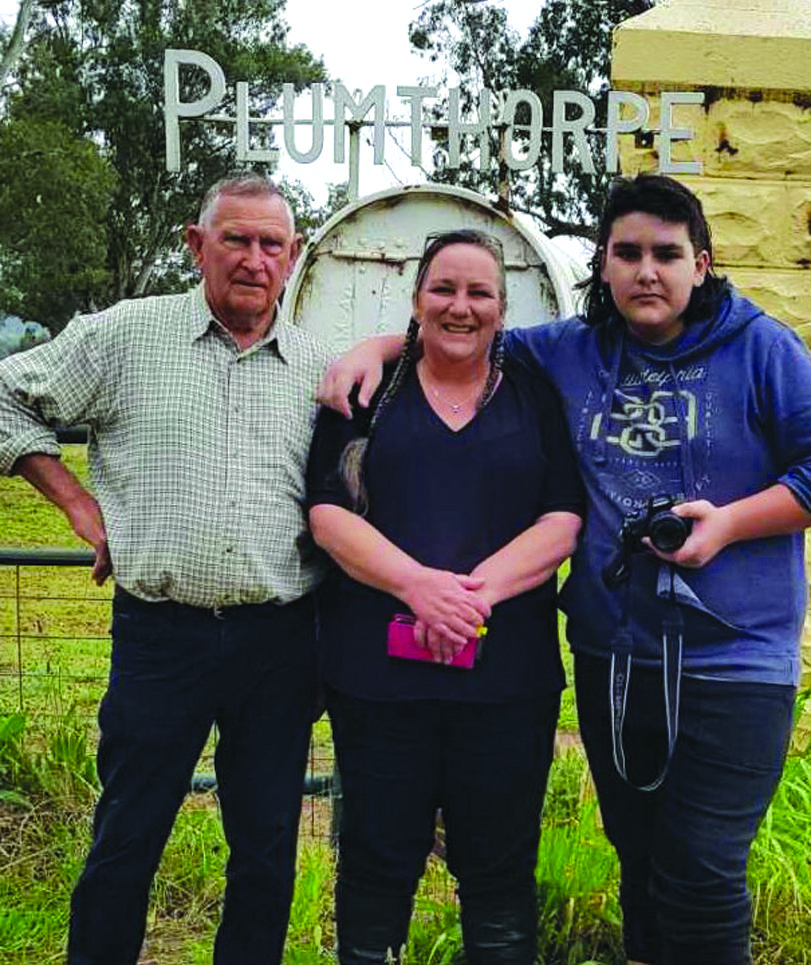
Last week a group of locals with an interest in both history and the present gathered to discuss a horrific Barraba killing that happened almost 130 years ago at Plumthorpe Station, west of Barraba. Bellingen woman Tracy Kimber, and her uncle Terry Cross of Inverell have a personal connection. Tracy’s great great grandmother Elizabeth Legg killed her husband James Henry Legg on June 28, 1892 in what was a fight to the death. Elizabeth, in defending herself from her furious knife wielding husband, bashed him to death with a large wooden stick.
The story of Legg’s death told in the court documents and newspapers of the day is a compelling, gory and tragic account of a vicious domestic dispute on a cold and dark night in a remote bush cottage. Older residents can still recall details of the event that have been passed down. But when Tracy Kimber got in touch with the Barraba Historical Society that wasn’t what she needed information about. Instead Tracy had something else on her mind.
Legg (called Jim in one of the court documents) was clearly not a good bloke. A farmer and carrier, he had a long history as a cruel and violent man. He had been in and out of gaol for lots of offences, including breaking his brother-in-law’s leg, inflicting severe injuries on his young daughter and tying his wife up behind a dray and dragging her behind it. He had been arrested 23 times in the eight years before his death.
Elizabeth and Jim married in 1875 and had eight children. Tracy Kimber is descended from the fifth child, Leah Muriel, born 1883. Leah’s son Ernest Cross was Tracy’s grandfather.
Tracy has had DNA testing that has indicated her great grandmother Leah Legg had an Aboriginal father. This was the aspect of her family history with which Tracy Kimber sought help from people in Barraba.
The court documents from Elizabeth’s trial say the Leggs were arguing on the night Legg was killed about “A certain man who Legg accused [Elizabeth] of doing wrong with”. Ron Hiscock mentioned to History Society representative Julie Williams that he had heard Elizabeth’s husband thought she was having a relationship with an Aboriginal man. Ron thought that was just a wild accusation. It seems it wasn’t.
Tracy says, “My great grandmother Leah Legg was born at Barraba in 1883, raised by her mum Elizabeth, nee Rumsby, and her father James Legg. As it turns out, James wasn’t her father and her biological father is very likely to have been an Aboriginal man. So I’m trying to find Aboriginal men who would have been working living around and in Barraba in late 1885 when old Elizabeth jumped the fence!”
The Barraba Historical Society hasn’t been able to identify Aboriginal men working on Plumthorpe in the 1880s and 90s. However they have introduced Tracy to some knowledgeable Barraba people who can tell her more. Last week Tracy travelled to Barraba with her uncle and aunt, Terry and Kay Cross, and son Munro. Julie Williams arranged for the family members to spend time with local history buffs Ron Hiscock, Maurice Potter and Bill Rumsby. Maurice then took Tracy and her group to the site on Plumthorpe where Elizabeth and Jim lived, and where Jim was killed.
Maurice knows the area well. He was brought up by his grandparents who worked on Plumthorpe. He spent his childhood learning the history of the property and area from his grandfather, and worked in the area as an adult.
Tracy says, “Maurice knew exactly where he was going and found the fence posts for all corners marking the house yard. I stood there listening to the bird life and in awe of the landscape – what an amazing place it would have been for the kids to be growing up when their father wasn’t at home!”
“Then I thought of Lizzie on the night James Henry was killed. Running through the bush in the dark, crossing the river twice to get to Wilson’s place. She’s just been attacked with a knife – the adrenaline must’ve been pumping through her body in crazy amounts.
“As I often do, I felt so proud of her. Protecting herself and her kids. I wondered how she felt when she was cuffed in the morning and taken to town. I think it likely it would’ve been on the same cart as her husband’s body. She was probably scared of what was to come and the legal consequences of that, worried for her children too. But geez, she must’ve been relieved. The terror of being married to him had finally ended!”
Tracy is hopeful she may be able to find the Aboriginal descendants of the unknown man who is her great great grandfather. If anyone has any information to share please get in touch with Tracy on [email protected], the Barraba Historical Society or this newspaper.
For those wondering what became of Elizabeth, she was arraigned on charges of manslaughter, pleaded self-defence and was acquitted. She later moved to Bingara and had two more (illegitimate) sons with a Mr Charlie “Zulu” Lord, who she then married and had a third son, and final child, Charles Lord. By Jane Harris

Tracy deep in conversation with local history expert Ron Hiscock

Terry Cross, Tracy and Munro Kimber at Plumthorpe


